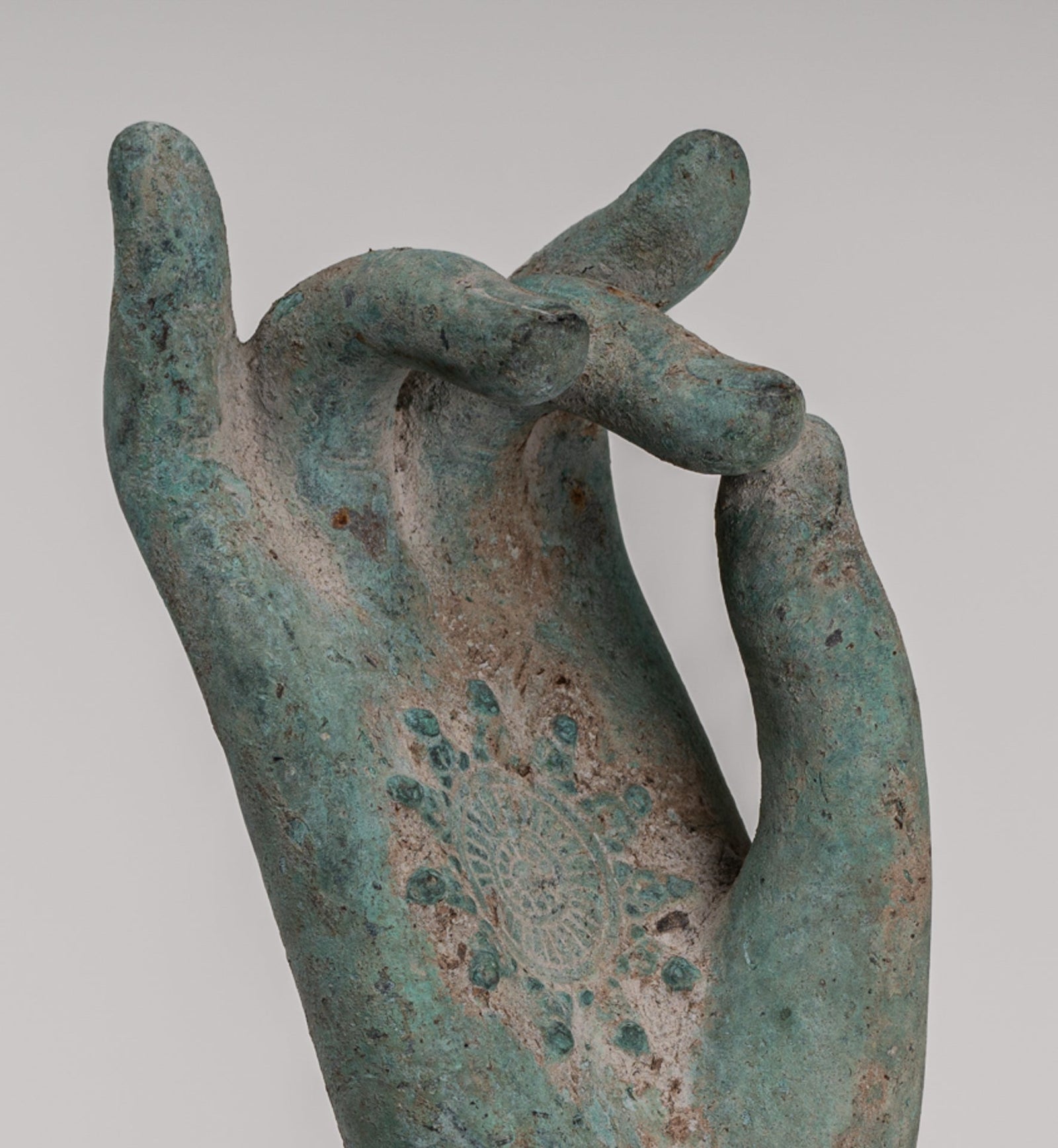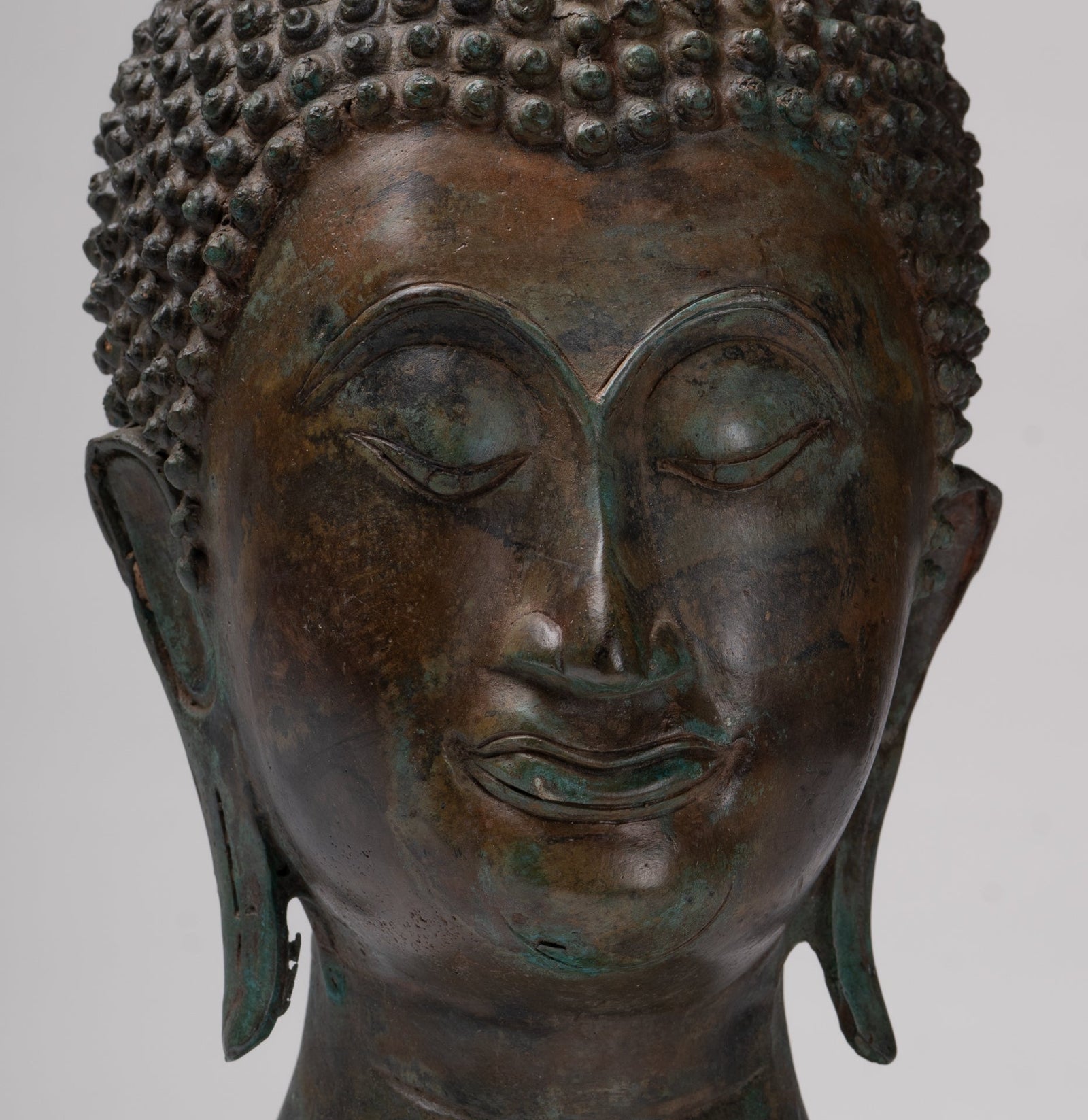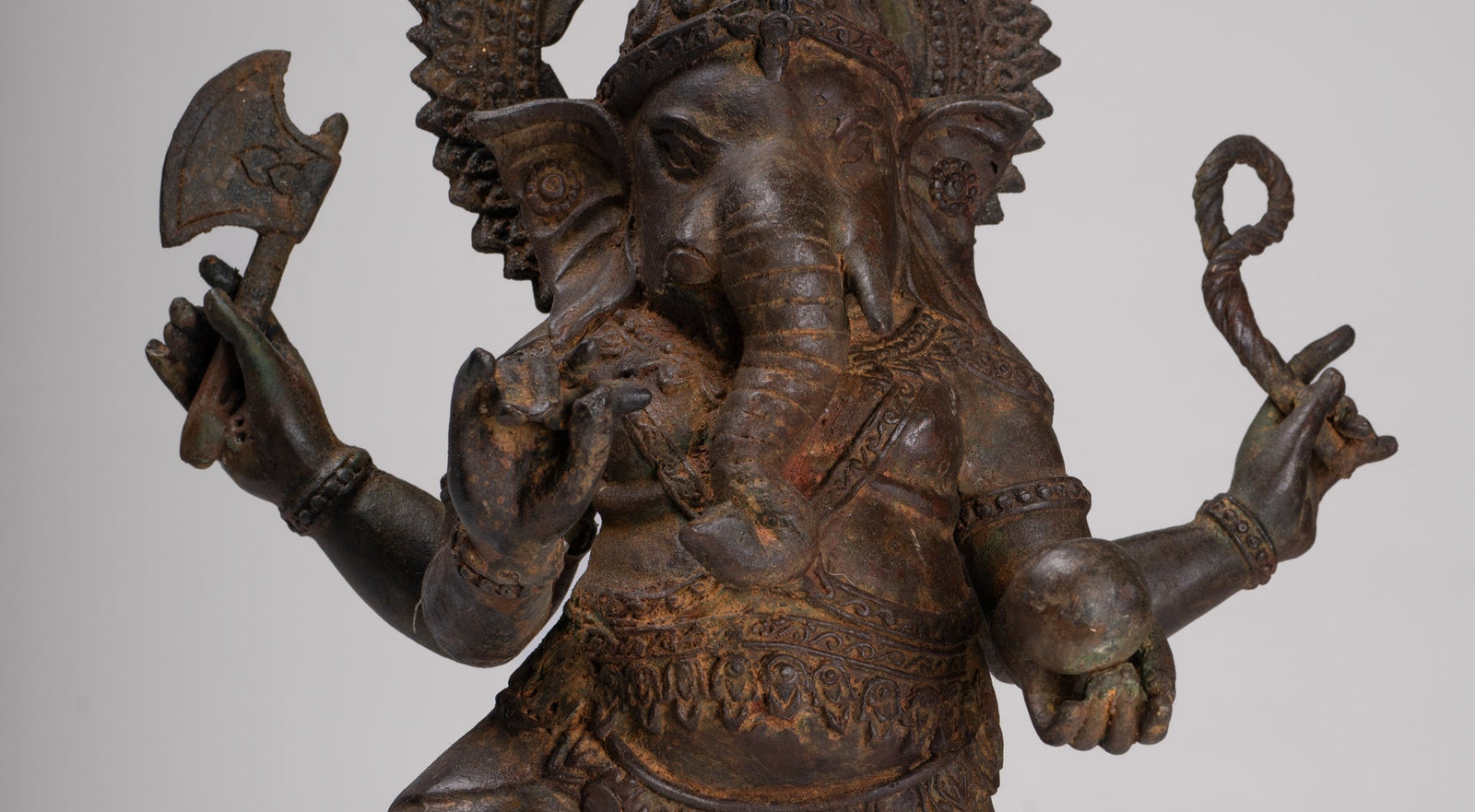-
Thai Rain Drum - Antique Thai Style Bronze Free Standing Rain Drum - 19cm/8"
Measures – (Height) 19cm/8”
In the world of unique and intriguing musical instruments, the frog rain drum stands out as a captivating creation that blends the beauty of nature with the artistry of human craftsmanship.
Originating from the rich cultural traditions of Southeast Asia, this percussion instrument not only produces mesmerizing sounds but also serves as a symbol of harmony between humans and the environment.
Frog rain drums find their roots in the indigenous cultures of Southeast Asia, where the natural environment has always played a significant role in shaping traditions and artistic expression. These drums are inspired by the diverse and vibrant ecosystems of the region, with a particular focus on the rhythmic sounds of rain and the chorus of frogs that often accompany it. The belief in the spiritual significance of frogs in various cultures further adds a layer of symbolism to these unique instruments.
This solid, round drum has a waisted base, the top and side finely cast in relief with concentric bands of decoration, the top displaying the wheel of dharma in the center and groups of stylized frogs applied at the rim, the sides with pairs of small loop handles.
Bronze rain drums were invented by the Dong Son people of modern day Vietnam and produced from about 600 BC or earlier. They are one of the culture's most astounding examples of metalworking. The discovery of Dong Son drums in New Guinea is seen as proof of trade connections – spanning at least a thousand years – between this region and the technologically advanced societies of Java and China.
At first glance, the frog rain drum may appear as a decorative piece of art, resembling a shallow basin adorned with intricate patterns and, of course, frog sculptures around it's rim. However, the magic lies in the construction and materials used. Typically crafted from bronze or other metals, these drums feature a hand-hammered surface with meticulously detailed designs inspired by nature.
In the center of this rain drum can be found the Wheel of Dharma - representing Gautama Buddha's teaching and walking of the path to Nirvana.
The frog sculptures around the rim of the Drum serve both as a functional and symbolic purpose. Functionally, it acts as a resonator, enhancing the sound produced by the drum when struck. Symbolically, the frog is often associated with rain and fertility in many cultures, making it a fitting representation for an instrument inspired by the rhythms of rainfall.
Playing the frog rain drum is an immersive experience that connects the musician with the elements of nature. Musicians use mallets or their hands to strike the surface of the drum, creating a range of tones that mimic the soothing sounds of raindrops falling on different surfaces. The resonance produced by the frog sculpture adds depth and character to the overall melody, making it a truly enchanting auditory experience.
Bronze drums are still being used ceremoniously in Southeast Asia by the Yi people, Zhuang people, Miao people and Qabiao people in northern Vietnam and southern China. They are generally struck in the center with a soft mallet, and on the side with a wood or bamboo stick. Among the ethnic Vietnamese, they are still used in some rituals, such as those to the Hung kings, but are rarely used as a musical instrument anymore. In Thailand, the Dong Son drum is also used in some ceremonies, where it is called the Mahorathuek.
Beyond their musical charm, frog rain drums hold cultural significance in various Southeast Asian traditions. They are often used in ceremonial rituals, celebrations, and spiritual practices, symbolizing the interconnectedness between humans and the natural world. The rhythmic beats of the drum are believed to invoke positive energies, bringing about harmony and balance.
The drum has handles at the side to aid with carrying. The sides of the drum are decorated with elephants and lotus leaves. The lotus represents purity, compassion and the giving of great joy to all.
Please enjoy a moment to appreciate the beauty of the frog rain drum—a testament to the ingenuity of human creativity and our ability to draw inspiration from the world around us.
These enchanting instruments not only produce captivating melodies but also serve as a reminder of the delicate dance between nature and culture. Upon hearing the rhythmic sounds of a frog rain drum, let yourself be transported to a world where music and nature harmonize in a symphony of beauty and grace.
This traditional in appearance piece is sure to add a unique touch to any room of your home or workplace.
One of the most recognizable of the Asian deities this representation of the spiritual teacher Buddha is sure to enlighten your home with endlessly timeless style.
SATISFACTION GUARANTEE - We have been offering SE Asian Art, through our website and eBay, for many years and are proud of the reputation we have developed for fair and honest listings. However, if for any reason, whatsoever, you are unhappy with your purchase please just let us know and we will provide a full refund. We want you to be 100% happy with your purchase.
-
The majority of orders will be shipped with DHL. This is a secure, express and fully tracked service.
Items less than 2Kg we typically ship using Royal Mail.
Once we receive your order we try to ship all orders the same or next working day.
Large and/or fragile pieces requiring palletising, specialist crating and/or extra packaging may take a little longer. Palletised shipments will be delivered curbside.
All orders over 35 GBP will be shipped free of charge.

-
We genuinely hope that all purchases delight.
However, if they do not, regardless of reason, we will refund all orders upon receipt of the unwanted item. Just notify us within 14 days of receiving your order that you wish to make a return and send the piece back to us with 30 days of delivery.
Let Us Help You Find The Piece You Desire
What Our Customers Think
I received it today and am very pleased with the statue. I plan to place another order.
David, Miami, FL, USA
The piece arrived safe and sound today. It is absolutely gorgeous and a wonderful addition to our home!
Juliann, Washington D.C., USA
The elephant arrived safely. It’s beautiful...you are a gem! Thank you!
Frank, Gainesville, FL, USA












































